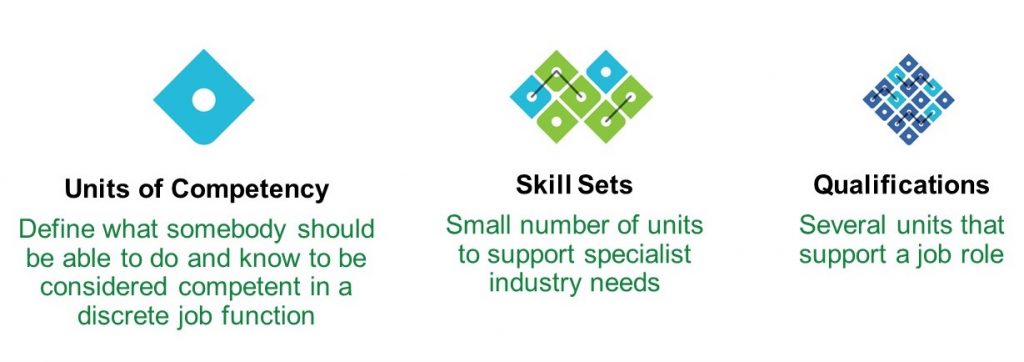The Government is committed to improving Australia’s skills systems and the vocational education and training (VET) sector. They are collecting feedback on a range of issues.
They are asking questions as part of a Discussion Paper about the role of industry in the VET system and how engagement could be improved to drive collaboration and better qualification outcomes.
In our submission to this discussion paper, we have summarised the feedback we have heard from industry and registered training organisations (RTOs) on these challenges and discussed some possible solutions.
We encourage you to make your own submission, with the specific viewpoints from your industry sector. Visit www.skillsreform.gov.au for more information on these reforms and learn how to get involved in the current consultations.
Skills standards are not a complete package of training
A key point in our submission is that industry drive the development of skills standards, not training standards. The terms ‘training packages’ and ‘training products’ are very confusing because skills standards (units of competency) describe what someone should be able to do and know in a workplace to be considered competent. They do not describe the content of training or how a person should go about learning the defined competency or job role or task. They do not describe how an RTO should go about training a person and they are not curriculum.
However, the VET regulator treats units as curriculum which causes angst with RTOs, who are forced to use the descriptions of the end point of competency as the methodology of training, rather than developing their own methods and approaches to help somebody achieve competency. This is inefficient and ineffective and creates unnecessary tension between industry skills standards production and the RTOs who are forced to use them as training curriculum when they are not developed as training curriculum. In fact, industry is poorly placed to develop training curriculum, whilst RTOs are well placed to collaborate on curriculum as pointed out in the recent Macklin report into VET in Victoria.

These are not curriculum, but they should guide the development of it
VET policy refers to them as “training products”. Policy is focused on improving training products when in fact, many of the issues are about a lack of access to training delivery, due to delivery viability or lack thereof, and nothing to do with the content of units of competency.
